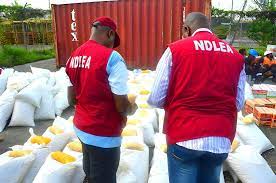Disturbed by the spate of unoccupied houses in the Federal Capital Territory (FCT), Abuja, Africa Network for Environment and Economic Justice (ANEEJ) has launched a website, to track and expose illegally acquired property in the city.
Executive Director of ANEEJ, Rev.
David Ugolor, who disclosed this at a workshop titled: “Tackling Corruption Through Transparency in Property Ownership”, said the website will unmask owners of illegal assets in Asokoro, Maitama, and Wuse Districts.
He added that funds generated from the exposed property could better be used to address critical infrastructures across different sectors for national development, and improve investment climate hardly get to the real destination.
According to him, the proceeds of crime are often times hidden in foreign safe havens abroad or used for acquisition of private property within and outside Nigeria.
The project, he said, is targeted at encouraging government to adopt nonconviction asset forfeiture approach to check sharp practices and channel proceeds from seized houses to finances development initiatives.
“Recently, the court ordered permanent forfeiture of over 50 houses belonging or, linked to high profile individuals.
Some of the houses have been seized by anti-graft agencies.
“Many more are currently under litigation.
So, ANEEJ is calling for review of existing policies and legislations governing property acquisition/ ownership and registration in Nigeria.
“We want to work with Abuja Geographical Information System, AGIS, anti-corruption agencies, Federal Capital Development Agency, FCDA, Federal Capital Territory Administration, FCTA, Federal Inland Revenue Service, FIRS, among others”, he added.
On his part, the Programme/ICT Officer, Erhisohwode Assurance Ovie, said the website named “Propati Tracka Platform” was designed to bring to the knowledge of the government some numbers of unoccupied choice property located in Abuja.
He regretted that owners of the assets did not pay appropriate tax; rather, snakes and dangerous reptiles occupy them because low-income earners cannot afford to pay the high cost of rent.



